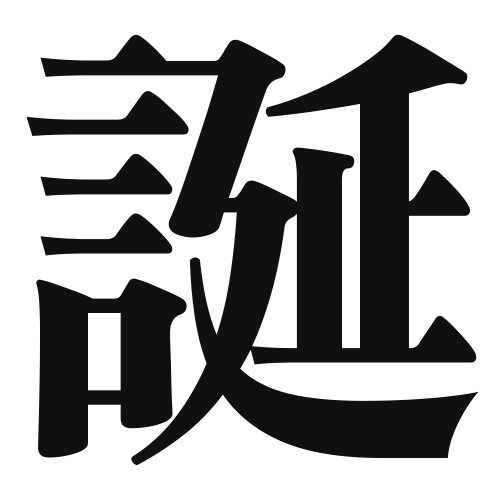1. Overview of Meaning
The kanji “誕” (tan) means “birth” or “to be born.” It is often associated with the concept of new beginnings and the celebration of life.
2. Formation and Radical
Formation of the Kanji: The kanji “誕” is a compound character (会意文字) that combines the elements of “言” (word) and “旦” (dawn), symbolizing the idea of a new day or the beginning of life through words.
Radical: The radical for “誕” is “言” (gen), which relates to speech or words, emphasizing the importance of communication in the context of birth and celebration.
3. Examples of Usage
Common Words and Phrases:
- 誕生日 (たんじょうび, tanjoubi) – birthday
- 誕生 (たんじょう, tanjou) – birth
Example Sentences in Daily Conversation:
- 今日は私の誕生日です。 (Kyou wa watashi no tanjoubi desu.) – Today is my birthday.
- 彼は誕生したばかりの赤ちゃんです。 (Kare wa tanjou shita bakari no akachan desu.) – He is a baby who has just been born.
4. Synonyms and Antonyms
Similar Kanji:
- 生 (せい, sei) – life; this kanji emphasizes the state of being alive rather than the act of being born.
Antonyms:
- 死 (し, shi) – death; this kanji represents the end of life, contrasting with the concept of birth.
5. Cultural and Historical Background
Relation to Japanese Culture: The concept of “誕” is deeply embedded in Japanese culture, particularly in the celebration of birthdays, which are often marked with family gatherings and special meals.
Proverbs and Idioms: One common phrase is “誕生の喜び” (tanjou no yorokobi), meaning “the joy of birth,” which reflects the positive sentiments associated with new life.
